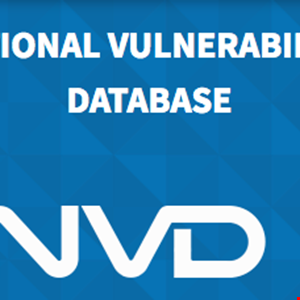[ad_1]
Privacy is one of our most basic human needs and rights. While most of us go about our daily lives sharing personal information online and offline without much thought, the issues of privacy have become increasingly complex in our modern, digital world. A single photo posted to social media can reveal more about our location, activities, and relationships than we might intend.
A quick online search or app permission can leave traces of our interests, health details, and contacts that are collected and combined in ways we may not realize. As individuals, we leave a detailed digital footprint with nearly every online activity and connection.
While convenience and connection are clear benefits of today’s technologies, the abundance of data collection and its potential for misuse also introduces serious risks to our privacy that did not exist even just a decade ago.
In this blog post, we will explore the evolving challenges to privacy in our data-driven world, why privacy matters, and some potential solutions for better protecting ourselves and regaining control of our personal information in the digital age.
Table of Contents
- What is Privacy?
- Is Privacy a Right?
- What is Data Privacy?
- Why is Data Privacy Crucial?
- Challenges of Privacy
- Laws of Data Privacy
- Tips to Protect Data Privacy
- Wrapping Up!
- Key Highlights
- FAQ’s
What is Privacy?

Privacy stands as a fundamental right, vital for upholding autonomy and safeguarding human dignity, serving as the bedrock upon which numerous other human rights rest.
It empowers individuals to erect barriers and delineate boundaries, shielding themselves from undue interference in their lives.
This ability allows us to define who we are and dictate how we engage with the world around us. Privacy aids in establishing limits on access to our bodies, spaces, possessions, communications, and information.
The regulations safeguarding privacy provide us with the means to assert our rights, even in the face of significant power differentials.
Consequently, privacy serves as a critical mechanism for shielding ourselves and society from arbitrary and unjust uses of power. It achieves this by limiting what can be known about us and preventing others from exerting control over us.
Privacy is intrinsic to human identity, shaping our daily decisions. It furnishes us with a sanctuary to express ourselves freely, unfettered by judgment, and fosters unimpeded contemplation, safeguarding against discrimination. Moreover, it grants us the authority to determine who possesses knowledge about us, thereby affording us a measure of control over our personal information.
Is Privacy a Right?
Privacy is indeed recognized as a fundamental human right, enshrined in many international and regional human rights. Key documents include:
- United Nations Declaration of Human Rights (UDHR) 1948, Article 12: Guarantees protection against arbitrary interference with privacy, family, home, or correspondence, and affirms the right to legal recourse against such interference.
- International Covenant on Civil and Political Rights (ICCPR) 1966, Article 17: Ensures protection against arbitrary or unlawful interference with privacy, family, house, or correspondence, and the right to legal protection against such interference.
Numerous other international agreements and regional charters also affirm the right to privacy, reflecting its status as a core human right across diverse cultural and political contexts.
An essential aspect of privacy rights is the protection of personal data. While the broader right to privacy encompasses data protection, several international and regional instruments explicitly address this issue:
- OECD Guidelines on the Protection of Privacy and Transborder Flows of Personal Data
- Council of Europe Convention 108 for the Protection of Individuals with Regard to the Automatic Processing of Personal Data
- European Union Directives and pending Regulation, including the European Union Charter of Fundamental Rights
Additionally, many countries have enacted privacy and data protection laws to safeguard individuals’ rights in the digital age.
Despite these legal protections, privacy violations, such as unwarranted surveillance, remain a concern. Organizations like Privacy International advocate for the enforcement of privacy laws and regulations to prevent abuses of power by governments and corporations and ensure the protection of individuals’ privacy rights.
What is Data Privacy?

Data privacy encompasses an individual’s ability to dictate when, how, and to what extent their personal information is shared or disclosed to others.
This personal data may include one’s name, location, contact details, or online and real-world activities. Just as someone might desire to exclude certain individuals from a private conversation, many online users seek to regulate or prevent the collection of specific types of personal information.
With the proliferation of Internet usage, the significance of data privacy has surged. Websites, applications, and social media platforms often require gathering and retaining personal data from users to deliver services effectively.
However, some platforms and applications may surpass users’ expectations regarding data collection and usage, resulting in diminished privacy. Inadequate safeguards around collected data can also lead to data breaches, jeopardizing user privacy.
Why is Data Privacy Crucial?
The significance of data privacy is closely linked to the value businesses attach to data. In today’s dynamic data-driven landscape, companies of all sizes are gathering and storing data from various sources at an unprecedented rate. This data serves multiple business purposes, including:
- Identifying customers, understanding their needs, and delivering goods and services to them.
- Analyzing business infrastructure, facilities, and human behaviors using data from networks and devices.
- Extracting insights from databases and data repositories.
- Training machine learning and AI systems.
Data privacy is a discipline aimed at safeguarding data against unauthorized access, theft, or loss. Ensuring the confidentiality and security of data involves robust data management practices and measures to prevent unauthorized access that could lead to data loss, alteration, or theft.
For individuals, the exposure of personal data can result in unauthorized account charges, privacy violations, or identity theft. For businesses, unauthorized access to sensitive data may expose intellectual property, trade secrets, and confidential communications, and it can negatively impact the outcomes of data analytics.
Data privacy breaches, commonly known as data breaches, can have severe repercussions for all parties involved. Individuals affected by a data breach may encounter fraudulent financial and credit activities, compromised social media accounts, and other issues.
Businesses may face significant regulatory penalties, such as fines, legal actions, and irreparable harm to their brand and reputation. With the integrity of their data compromised, businesses may lose trust in their data and require a comprehensive response plan.
Challenges of Privacy

Privacy faces various challenges in today’s interconnected world, including:
- Data Collection: With the proliferation of digital devices and online services, vast amounts of personal data are collected and stored by companies. This collection often occurs without individuals’ full awareness or consent, raising concerns about data privacy.
- Data Breaches: Data breaches occur when unauthorized parties gain access to sensitive information, resulting in potential misuse or exploitation of personal data. These breaches can result from cyberattacks, insider threats, or inadequate security measures, posing significant risks to individuals’ privacy.
- Surveillance: Advances in technology enable pervasive surveillance, both by governments and private entities. Surveillance practices, such as mass data collection, facial recognition, and location tracking, erode individuals’ privacy rights and raise concerns about government overreach and abuse of power.
- Lack of Transparency: Many organizations lack transparency regarding their data practices, making it challenging for individuals to understand how their personal information is collected, used, and shared. Without clear information, individuals cannot make informed decisions about their privacy.
- Privacy Regulations: While privacy regulations aim to protect individuals’ privacy rights, compliance can be challenging for organizations due to the complexity and inconsistency of laws across jurisdictions. Additionally, regulatory requirements may lag behind technological advancements, creating gaps in privacy protection.
- Social Media and Online Activity: Social media platforms and online services collect extensive data about users’ behaviors, preferences, and interactions. This data is often used for targeted advertising and content personalization but can also be exploited for privacy-invasive purposes, such as manipulation and surveillance.
Addressing these challenges needs a multifaceted approach, including robust privacy laws, enhanced cybersecurity measures, transparency and accountability in data practices, and individual empowerment through privacy education and awareness initiatives. Protecting privacy rights is essential for upholding individual autonomy, dignity, and freedom in the digital age.
Laws of Data Privacy
As technology has evolved, governments worldwide have enacted laws to regulate data privacy, aiming to govern data collection, usage, storage, and protection. Key regulatory frameworks include:
- General Data Protection Regulation (GDPR): Governs the collection, storage, and processing of personal data of European Union (EU) residents, granting individuals rights to control their data, including the right to be forgotten.
- National Data Protection Laws: Numerous countries, such as Canada, Japan, Australia, and Singapore, have their own data protection laws. Examples include Brazil’s General Law for the Protection of Personal Data and the UK’s Data Protection Act.
- California Consumer Privacy Act (CCPA): Requires organizations to disclose personal data collection practices and grants consumers control over their data, including the ability to opt out of data sales.
- Industry-specific Guidelines: Regulations like the Health Insurance Portability and Accountability Act (HIPAA) in the US govern the handling of personal healthcare data.
Despite these regulations, concerns persist about individuals’ control over their data. Future legislation may address these gaps to further safeguard privacy rights globally.
Tips to Protect Data Privacy

Protecting data privacy is crucial in today’s digital age, where personal and sensitive information is constantly at risk of unauthorized access or misuse. Whether you’re an individual or a business, implementing robust data privacy practices is essential to safeguard sensitive data. Here are some detailed tips to help protect data privacy:
For Individuals:
1) Use Strong Passwords and Change Them Frequently:
- Create complex passwords that involve a combination of letters, numbers, and special characters.
- Avoid using easily guessable passwords like “password123” or “123456”.
- Change your password regularly to decrease the risk of unauthorized access.
2) Enable Multifactor Authentication (MFA):
- Whenever possible, enable MFA for your important accounts.
- MFA adds an extra security by needing additional verification beyond just a password, like a fingerprint scan or a unique code on your phone.
3) Exercise Caution with Emails and Links:
- Avoid hitting on links or downloading attachments from suspicious or unknown emails.
- Be wary of phishing tries where attackers try to trick you into disclosing sensitive information by impersonating legitimate organizations.
4) Minimize Sharing of Personal Information:
- Only provide personal information when absolutely necessary, and avoid sharing sensitive data unless you trust the recipient.
- Be cautious regarding sharing personal details on social media platforms, as this information can be used for targeted attacks or identity theft.
5) Use Malware Protection Tools:
- Install trusted antivirus & anti-malware software on your devices and keep them updated.
- Regularly scan your devices for malware and delete any detected threats promptly.
6) Exercise Caution with Apps and Websites:
- Only download apps and visit websites from trusted sources.
- Review app permissions before giving granting access to your personal data and limit permissions to only essential functions.
For Businesses:
1) Collect and Retain Data Responsibly:
- Only collect and retain the minimum amount of data necessary to fulfill business objectives.
- Regularly review data retention policies and securely dispose of data that is no longer needed.
2) Implement Strong Authentication Measures:
- Require employees and users to use strong, unique passwords for accessing business systems and applications.
- Implement MFA for added security when accessing sensitive data or systems.
3) Encrypt Data:
- Encrypt sensitive data at rest & in transit to protect it from unauthorized access.
- Use encryption protocols such as HTTPS for web communications and encryption algorithms for data storage.
4) Educate Employees and Stakeholders:
- Give regular training and awareness programs to educate employees about data privacy best practices.
- Foster security awareness and encourage employees to report any fraud activities or security incidents.
5) Compliance with Regulations:
- Stay informed regarding data privacy regulations and ensure compliance with applicable laws like GDPR, CCPA, HIPAA, etc.
- Conduct regular audits and analysis to ensure adherence to regulatory requirements.
6) Secure Third-Party Relationships:
- Vet third-party vendors and service providers for their data privacy tactics and ensure they comply with relevant regulations.
- Use contracts and agreements to clearly define data privacy responsibilities and requirements.
By implementing these tips, both individuals and businesses can enhance their data privacy posture and mitigate the threat of data breaches, access, and other privacy-related incidents. Remember that protecting data privacy requires ongoing vigilance and commitment to best practices in cybersecurity.
Wrapping Up!
Privacy is a fundamental right that should be protected in the digital age. With advancements in technology and the evolving reliance on digital platforms, the importance of privacy has become more crucial than ever before. However, there are various challenges and threats to privacy in the cybersecurity landscape that must be addressed urgently.
The challenge is the exploitation of personal data by companies for profit or by malicious actors for illegal activities. To address this, there must be strict regulations in place to govern how companies collect, store, and use personal information.
Additionally, individuals must also take responsibility for their own privacy by being aware of their online footprint and taking necessary precautions to protect their data.
By prioritizing privacy protection through regulations, education, collaboration & proactive security measures we can create a more resilient cyberspace where individuals can confidently engage without fear of compromising their personal information.
Key Highlights
- Privacy stands as a fundamental human right, serving as a cornerstone for autonomy and human dignity.
- Rapid advancements in data collection and surveillance capabilities, coupled with the proliferation of digital platforms, have heightened the vulnerability of individuals to privacy threats.
- Implementation of strong authentication mechanisms, such as multifactor authentication, enhances access controls and fortifies data protection measures.
- Collaboration between stakeholders, including governments, organizations, and individuals, is imperative to address privacy challenges comprehensively.
FAQ’s
1) What is the importance of privacy in cybersecurity?
Privacy is crucial in cybersecurity as it protects individuals’ personal and sensitive details from unauthorized access, use, and disclosure. Without privacy measures, sensitive data can be exploited by cybercriminals for various malicious activities, leading to financial loss, identity theft, and reputational damage.
2) What are the common challenges to privacy in cybersecurity?
Common challenges to privacy in cybersecurity include data breaches, where hackers get unauthorized access to sensitive information, lack of proper encryption methods, which can lead to data interception, and the proliferation of online tracking technologies, compromising user privacy.
3) How can individuals protect their privacy in cybersecurity?
Individuals can protect their privacy in cybersecurity by using strong, passwords for their accounts, and enabling two-factor authentication wherever possible, being cautious regarding sharing personal information online, and regularly changing privacy settings on media platforms and other online accounts.
4) What are some solutions to address privacy concerns in cybersecurity?
Solutions to address privacy concerns in cybersecurity include implementing strong encryption protocols to save sensitive data, adopting privacy-enhancing technologies like virtual private networks (VPNs) and secure messaging apps, and adhering to privacy regulations and standards like the General Data Protection Regulation (GDPR) & the California Consumer Privacy Act (CCPA).
Related
[ad_2]









Add comment